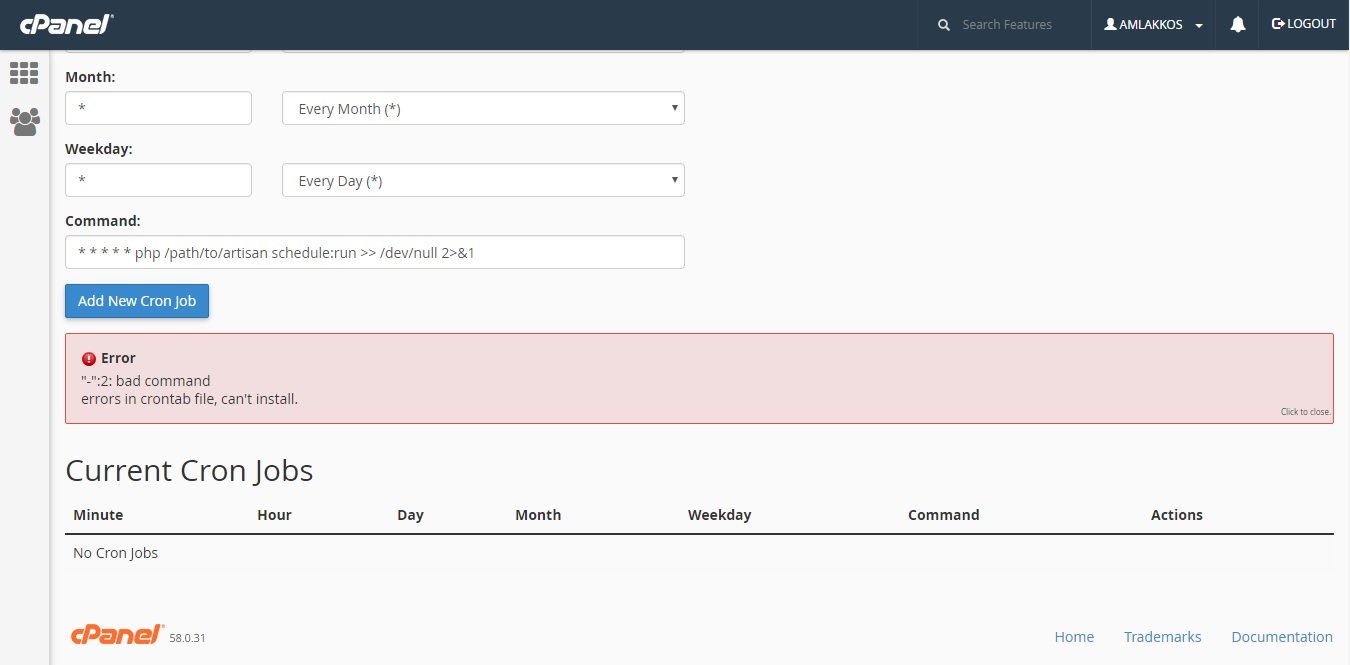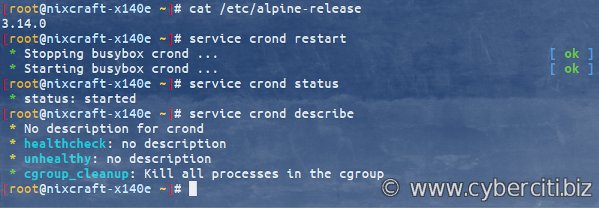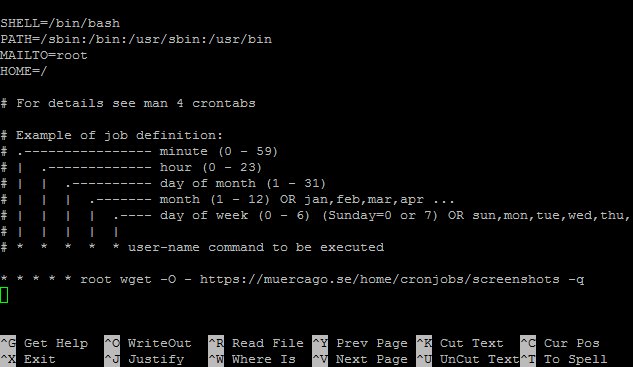Looking to optimize and automate your Nextcloud experience? Look no further! The Nextcloud cron is the answer to all your synchronization and scheduling needs. This powerful feature allows you to effortlessly manage tasks, such as file indexing, background jobs, and regularly updating your Nextcloud instance. By incorporating the Nextcloud cron into your workflow, you can ensure that your Nextcloud server runs smoothly and efficiently, without any manual intervention. Let’s dive into the details of how you can harness the full potential of the Nextcloud cron to enhance your productivity and simplify your daily tasks.
Understanding Nextcloud Cron
Nextcloud is a powerful open-source file sync and share solution that allows you to access your files from anywhere, collaborate with others, and protect your data. To ensure smooth performance and timely updates, Nextcloud utilizes a cron job (cron stands for “chronograph”) to automate tasks and schedule background processes. In this article, we will explore the ins and outs of Nextcloud cron, discussing its importance, configuration, troubleshooting, and best practices.
The Significance of Nextcloud Cron
What is a cron job?
Before diving into Nextcloud cron, it’s essential to understand the concept of a cron job. A cron job is a time-based task scheduler in Unix-like operating systems. Essentially, it allows you to schedule repetitive tasks to run automatically at specific intervals, such as every minute, hour, day, week, or month.
Why is Nextcloud cron important?
Nextcloud relies on cron jobs to handle various crucial background tasks, including:
– File integrity checks: Nextcloud uses checksums to verify the integrity of files stored in your instance. Cron jobs periodically calculate and compare these checksums to ensure the files haven’t changed unexpectedly.
– Background jobs: Nextcloud performs various maintenance tasks in the background, such as cleaning up old files, updating the activity feed, or generating previews. These jobs are scheduled and executed through cron.
– App updates: Nextcloud apps regularly receive updates to introduce new features, fix bugs, or enhance security. Cron jobs check for available updates and apply them automatically, ensuring your Nextcloud instance remains up to date.
– Email notifications: If you have email notifications enabled, cron jobs help deliver these notifications promptly, allowing you to stay informed about file activities, shares, and other important events.
In summary, Nextcloud cron plays a crucial role in maintaining the overall health, performance, and functionality of your Nextcloud instance. Without proper cron configuration, these background tasks may be delayed or missed entirely, potentially leading to inconsistencies, outdated information, and reduced user experience.
Configuring Nextcloud Cron
Server Requirements
To configure Nextcloud cron, you need to ensure that your server meets the following requirements:
– Access to the command line: You will need secure shell (SSH) or terminal access to your server to execute cron jobs.
– Cron daemon: The server should have a cron daemon installed and running. Most Linux distributions come with cron pre-installed, but you may need to install it manually if it’s missing.
Setting Up Nextcloud Cron
The process of setting up Nextcloud cron involves two main steps: configuring the cron job and adjusting the Nextcloud configuration.
Configuring the Cron Job
To configure the cron job:
1. Access your server via SSH or terminal.
2. Identify the user responsible for running the Nextcloud instance. This can typically be the web server user or your primary user account.
3. Execute the following command to open the cron configuration:
“`
crontab -u
“`
Replace `
4. In the cron configuration file, add the following line to run the Nextcloud cron job every five minutes:
“`
*/5 * * * * php -f /path/to/nextcloud/cron.php
“`
Make sure to replace `/path/to/nextcloud` with the actual path to your Nextcloud installation directory.
5. Save the file and exit the editor.
Adjusting Nextcloud Configuration
After configuring the cron job, you need to adjust your Nextcloud configuration accordingly:
1. Open the Nextcloud `config.php` file located in your Nextcloud installation directory.
2. Locate the `’cronjob’ => true,` line and ensure that it is uncommented (i.e., remove the leading `//` if present).
3. Save the file.
Troubleshooting Nextcloud Cron
While configuring Nextcloud cron is usually straightforward, issues may arise that prevent cron jobs from running as expected. Here are some common troubleshooting steps to resolve Nextcloud cron problems:
Check File System Permissions
Ensure that the user running the cron job has the necessary read, write, and execute permissions on the Nextcloud installation directory.
Verify Cron Job Execution
You can manually verify if the cron job is working by running the following command:
“`
php -f /path/to/nextcloud/cron.php
“`
Replace `/path/to/nextcloud` with the actual path to your Nextcloud installation directory. If the cron job executes successfully, you should see some output indicating that the scheduled tasks have run.
Check Cron Daemon
If the cron job fails to execute, ensure that the cron daemon is running on your server. You can check its status using the following command:
“`
service cron status
“`
If the daemon is not running, start it using the appropriate command for your Linux distribution.
Best Practices for Nextcloud Cron
To ensure optimal performance and reliability of your Nextcloud cron, consider the following best practices:
– Schedule frequent cron job execution: Running the cron job more frequently, such as every five minutes, helps ensure timely updates and minimal delays for background tasks.
– Monitor cron job output: Set up email notifications or log monitoring to receive cron job output and error messages. Regularly checking these logs can help you identify and address any issues promptly.
– Optimize file integrity checks: If you experience significant performance issues during file integrity checks, consider adjusting the frequency or disabling them if they are less critical for your use case.
– Configure external queues: For large-scale deployments, consider using external task queuing systems, such as Redis or RabbitMQ, to offload cron-related tasks and improve overall performance.
Incorporating these best practices into your Nextcloud cron setup can help ensure a smooth, efficient, and hassle-free experience for both administrators and users.
In conclusion, Nextcloud cron is a vital component of maintaining a healthy and functional Nextcloud instance. By understanding its significance, configuring it correctly, troubleshooting any issues, and following best practices, you can unleash the full potential of Nextcloud and enjoy a reliable and efficient file synchronization and sharing solution.
Fix Nextcloud Cron Job not Running on NC 21.0.3 – Nextcloud Redis Setup
Frequently Asked Questions
What is Nextcloud cron?
Nextcloud cron is a background task that periodically executes certain operations in Nextcloud. It ensures that scheduled maintenance tasks, such as file scans, trash cleanup, and other important operations, are performed automatically.
How does Nextcloud cron work?
Nextcloud cron works by running a PHP script at regular intervals, typically every 15 minutes. This script triggers the execution of various tasks that Nextcloud needs to perform behind the scenes. These tasks help to ensure the smooth functioning and optimization of your Nextcloud instance.
Why is Nextcloud cron important?
Nextcloud cron is crucial for maintaining the health and performance of your Nextcloud installation. It ensures that important tasks, such as file indexing, sharing notifications, and background jobs, are executed regularly. Without a properly configured cron job, your Nextcloud instance may experience delays, inconsistencies, or performance issues.
How can I configure Nextcloud cron?
To configure Nextcloud cron, you can edit the crontab file on your server. Open the terminal and enter the command crontab -e to edit the file. Add a new line with the following syntax:
* * * * * php -f /path/to/nextcloud/cron.php
Replace /path/to/nextcloud with the actual path to your Nextcloud installation. Save the file and exit the editor. The cron job will now run every minute, triggering Nextcloud tasks.
Can I use an alternative method instead of the cron job for Nextcloud?
Yes, if running a cron job is not an option for you, Nextcloud also provides an alternative method called AJAX cron. With AJAX cron, Nextcloud tasks are triggered when users access the Nextcloud web interface or when changing pages within it. However, note that AJAX cron may not be as reliable as a regular cron job, especially if your Nextcloud instance has low traffic.
What are the advantages of using a regular cron job over AJAX cron?
A regular cron job offers several advantages over AJAX cron. Firstly, it allows you to have more control over when tasks are executed, ensuring they run at specific intervals. Secondly, it offloads the task execution from user interactions, resulting in a smoother user experience. Lastly, a regular cron job is generally more reliable and predictable compared to AJAX cron, which relies on user actions to trigger tasks.
Final Thoughts
The nextcloud cron is an essential tool for automating tasks in Nextcloud. With the cron, you can schedule regular maintenance activities and background jobs to keep your Nextcloud instance running smoothly. By setting up the cron, you can ensure that important tasks like file scanning, thumbnail generation, and background processes are executed at regular intervals. This helps improve the overall performance and efficiency of your Nextcloud instance. So, if you want to automate and optimize your Nextcloud experience, look no further than the nextcloud cron.




